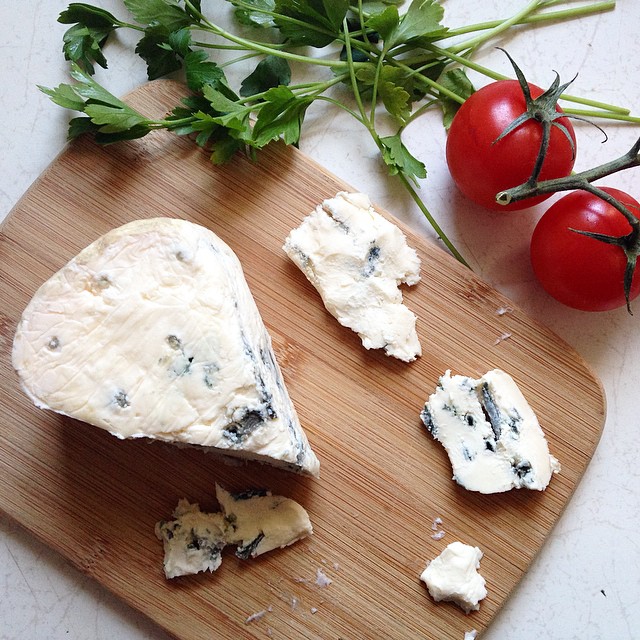 For as long as most of us can remember, we’ve been told to drink our milk. It has calcium. It has Vitamin D. It has protein. We’ve been told that without milk we will develop osteoporosis and Rickets. I hate to burst your (milk) bubble, but would you be surprised to hear that the complete opposite can be true?
For as long as most of us can remember, we’ve been told to drink our milk. It has calcium. It has Vitamin D. It has protein. We’ve been told that without milk we will develop osteoporosis and Rickets. I hate to burst your (milk) bubble, but would you be surprised to hear that the complete opposite can be true?
Have you ever stopped, stepped back, and really thought about milk? Maybe I’m strange, but I have. About 20 years ago I started asking myself questions like,
“why are we the only animal on the planet that drinks another animal’s milk, and drinks milk after past infancy?”
We’ve already covered that I was a weird child, so this shouldn’t surprise you.
The milk of any mammal (including humans) is produced by mothers to feed their babies. It is full of nutrients and protective factors in the high amounts needed to grow a baby animal into an adult animal quickly. In the case of humans, many women choose to breast feed their children, but usually wean them within the first couple years of life. Almost everyone in our country would think it’s strange to find human milk in the grocery store, so why are we okay when it’s from a cow? Clearly the Dairy Industry has a very good marketing team.
Dairy consumption also comes with associated health complications. After around age three, about 75% of humans stop producing an important enzyme called lactase, which breaks down lactose, the sugar in milk. These individuals are known as “lactose intolerant” and, after consuming dairy, can experience anywhere from mild symptoms such as bloating, gas, diarrhea, and nausea, to more severe symptoms, including those associated with Irritable Bowel Syndrome and Crohn’s Disease. Dairy has also been linked to conditions such as asthma, heart disease, and diabetes.
Since milk is meant to grow baby cows, it contains a growth factor called Interstitial Growth Factor-1 (IGF-1) that tells the body to grow and replicate cells. For this reason it has also been linked to cancer.
In 1997 Harvard conducted the Nurses Health Study, which followed 78,000 nurses for 12 years to determine the correlation between dairy consumption and risk for osteoporosis. The study showed a direct correlation between dairy consumption and rate of osteoporosis, with the United States, Sweden & Finland coming out on top in both categories. This is partially due to the acidic nature of milk, which the body neutralizes by leaching calcium from bones. Recently Harvard went a step further to create a Healthy Eating Plate, much like the USDA’s MyPlate (formerly the Food Pyramid), which, due to its lack of influence from food industry lobbyists, shows a glass of water in place of milk.
By this point, the voice in your head is probably saying,“so, where do I get my calcium?” The short answer is the same place that cows do: plants.
Calcium is a mineral that plants absorb through the ground, which is then, in smaller amounts, secreted into their milk. The rate of calcium absorption from eating plants is much higher than from dairy sources, so try to get your calcium from foods like spinach, kale, or sesame seeds. Vitamin D can be obtained by simply spending 15 minutes in the sun on most days, or supplemented with a whole food-based vitamin to ensure maximum absorption and utilization.
Today, luckily, if you choose to cut dairy out of your diet, there are many healthy substitutes for cow’s milk (and cheese, yogurt, ice cream, etc.). Can’t live without your cereal in the morning? Try almond milk. Have a craving for ice cream? Coconut milk ice cream could really hit the spot. As a former 3-glasses-a-day milk (and other dairy) addict, I can honestly say that adjusting to a life without dairy was tricky at first, but well worth the rewards in the end.
Thanks for sharing this article. I’m someone who gets debilitating menstrual cramps each month. When I cut dairy out of my diet for 21 days I noticed my cramps were virtually gone. There just has to be a link there. I’m sure on a cellular level my body wasn’t as inflamed from the dairy which gave it the ability to absorb the cramps better.
I’m so glad to hear that you’re feeling better, Jaki! It’s amazing what simple dietary changes can do.
Thanks for the info Sarah. I had symptoms like bloating, gas, and reflux for years. My doctor prescribed prilosec. It kept getting worse. I opened my shop near the ice cream shop and that’s when the symptoms were unbearable. The doctor said more prilosec. I went online and researched and decided to quit dairy. Low and behold the symptoms are gone and I feel 100% better. I wish more people knew they don’t need dairy
You’re welcome, Eileen! I’m so glad you took your health into your own hands and discovered the root of the problem.